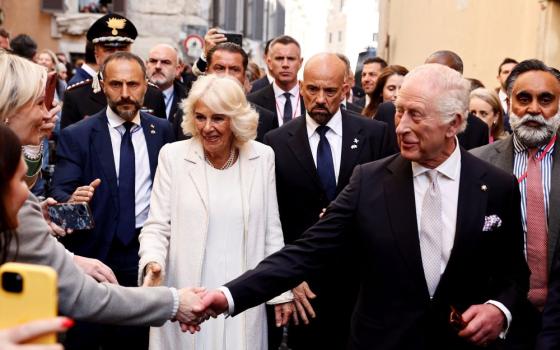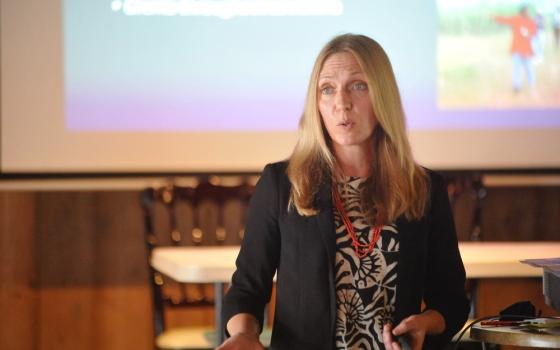Long-time Connecticut resident and jazz legend and composer, Dave Brubeck, died yesterday morning of heart failure. He was 91 years old and one day short of his 92nd birthday. He is survived by his wife, Iola, who he married in 1942, and his five sons.
NPR has a terrific tribute to Brubeck. It’s a wonderful remembrance, which includes Brubeck reflecting on his life. According to NPR:
“Jazz critic Nat Hentoff says he was blown away by Brubeck's transformation from jazz player to classical composer. "He's a much underrated composer. I heard a concerto — it was a religious work, and it was so powerful that it brought me to tears."
Later, Brubeck joined the Catholic Church. He became fascinated with composing religious fugues, operas and symphonies. That's not to say Brubeck stopped touring with his jazz groups — some of which included his sons.”
Brubeck’s music was inspired by religion, the civil rights movement and the students killed at Kent State.
Here’s a fascinating reflection by Brubeck on his understanding of religion and his decision to join the Catholic church:
“In the thirty years since the breakup of the classic Brubeck Quartet, many of Dave's compositions have been religious in nature, influenced by Dave's deep-seated spiritual beliefs.
'At that time I was thinking about composing a piece - I was in my early twenties - on the Ten Commandments, concentrating on all the commandments but concentrating mostly on 'Thou shalt not kill.,' Dave explains. 'And knowing that our enemy, being Catholic from Italy, basically they knew these same Ten Commandments. The Germans being Catholic and Protestant, knew these same Ten Commandments. Why didn't they stick with us? And why is there a war if this is one of our commandments from God is that you shouldn't kill each other? It's still a part of many of the religious pieces I write.' Brubeck's questions about the meaning of life and death filtered into his music.
'[I'm] thinking about how in my own small way can I get a message across,' he says. 'When you write a religious piece, the choir really will say, 'I've heard these things said every time I go to church but they didn't mean anything until I start to sing them. And now they have much more meaning to me.' That's what you try to do through religious music -- to reach people where it's truly going to be the survival of humanity or the destruction of humanity. My second piece, The Gates of Justice, was built around Martin Luther King, Jr., saying, 'We must live together as brothers or die together as fools.' Now there's one sentence that says it all. It isn't complicated to figure what the meaning of that is. That's what you try to bring to people.'
One of Dave's major religious compositions is the mass To Hope! A Celebration. When Brubeck finished the piece, he was proud to play it for various religious officials. But a priest told him he had left the Our Father out of the mass, after the premiere.
'He was very disappointed,' Dave explained. 'He said 'I loved your mass, but you left out the Our Father.' I said, 'What's the Our Father?' because that doesn't mean anything to me. I'm not a Catholic. And he said, 'Our Father, who art in Heaven.' And I said, 'that's The Lord's Prayer.' And the priest said 'Well, in Catholicism, we call it the Our Father. So I said, 'Well, nobody told me to write it, so I didn't write it. I'm finished with The Mass, I'm going to the Bahamas with my family, and I'm going to take a vacation. I've been working very hard.' So I get down there, and what happens? I dream the Our Father because a priest tells me I left it out. So I jump up in the middle of the night, and write it all down. And now it's in The Mass. '
The event didn't just revolutionize the piece; it changed Brubeck's life. ' I joined the Catholic Church, because I felt, somebody's trying to tell me something,' he realized. 'Now, people say I converted. I didn't convert to Catholicism, because I wasn't anything to convert from. I just joined the Catholic Church.'
Brubeck compositions are influenced by more than just religion - they are very literally a part of him. He feels the music inside of him and transfers it to paper. In one particular instance, Brubeck composed a song the night before he entered the hospital for a heart procedure.
'Joy in the Morning was composed in the hospital at Yale, the night before I was going to have an angiogram,' Brubeck explains. 'And so I had my binder with me, and my doctor, Dr. Cohen, I didn't expect to see him at 10:30 at night, and I was writing away. And he came into the room, and he said, 'What's this?' And I said, 'Well, I'm writing something.' And he said, 'I've never had a patient the night before they're going to go downstairs early in the morning and have an angiogram, be writing music.' And I said, 'Oh, I'm writing this because I feel it would be the right thing to be doing, and I'm not able to sleep. I might as well be writing music.'
'But what I didn't tell him, is I'm writing about the operation. It was a Psalm that said, I'll paraphrase it, 'What can you do, O Lord? Can the dust praise Thee if you bury me six feet under? Who will praise Thee if you put me down in the pit? And joy will come in the morning.' It's all in the Psalm, and I'm looking at the Psalm, and writing the music, so that I'll have a good operation. And he, as the doctor, will do a good job. So then I dedicated that piece to Dr. Cohen, because it had all the things in that Psalm that I was worried about, and wanted to get over with.'
In Joy In the Morning, Brubeck literally transcribed the heartbeat inside of him. The opening section reflects the erratic beat of Brubeck's own arrhythmic heart and his trepidation before the operation. Then it moves to a joyous crescendo with a steady, strong new beat - representing his healthy heart and the new lease on life that Brubeck will have after the successful surgery.
The New York Times posted a selection of ten tracks and performances by Brubeck that it found on YouTube.
The Greenwich Time reported:
"Even after his death, there's a chance the jazz giant is still hot on the keys. In a 2010 interview, he envisioned an afterlife where he'd again see his family and musician friends, including Louis Armstrong, Duke Ellington and Count Basie.
"If there's a heaven," Brubeck said, "let it be a good place for all of us to jam together and have a wonderful, wonderful musical experience."



